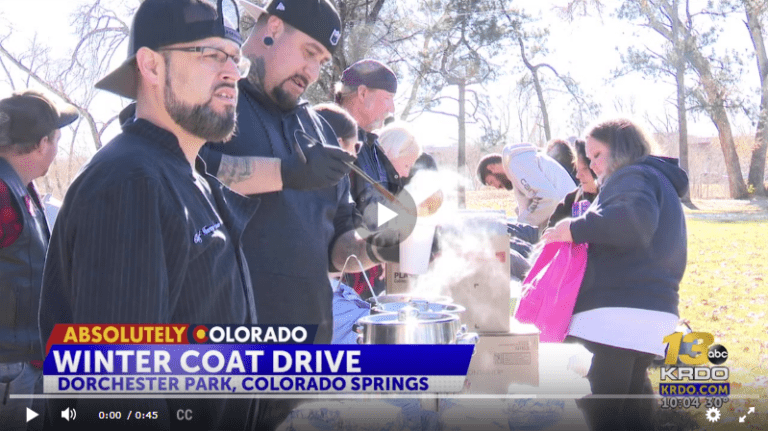Peer coaches offer substance use support in the ER – Crisis connection
While emergency department staff have the best of intentions when treating people who’ve just overdosed, they sometimes have trouble relating to patients.
“We know that doctors and nurses do great work, and they save people’s lives every day,” says Tonya Wheeler, the executive director of Denver nonprofit Advocates for Recovery. “Oftentimes the missing component is that they have not walked in those shoes. And so because there continues to be a large level of stigma, sometimes patients can be met with judgment.”
The idea behind a new grant awarded to Wheeler’s nonprofit, along with Springs Recovery Connection in Colorado Springs, is to bridge that gap by placing recovery support specialists, sometimes known as “peer recovery coaches,” in hospital ERs. The specialists — all of whom have personally struggled with substance use — will help connect patients to resources and hopefully jumpstart the process of long-term recovery.
Springs Recovery Connection, a nonprofit that offers telephone and face-to-face peer coaching, support groups and other resources for people with substance use disorders and their families, begins a contract with UCHealth Memorial Hospital on June 21 with funding assistance from the Colorado Consortium for Prescription Drug Abuse Prevention, through the Colorado Health Foundation.
To start, grant money will pay a stipend for on-call peer recovery coaches for the Memorial Central ER four days a week between 8 a.m. and midnight. The goal is to eventually have coaches on call six days a week, says Billie Ratliff, Memorial’s behavioral health supervisor.
“We have a large volume of patients that come to our various locations that have substance use disorder,” Ratliff says. “It’s a large problem in the county in general, and we recognize as a hospital system that we need to be providing more or better resources to individuals with substance use disorder to get them the care that they need.”
Ratliff notes that the hospital most commonly sees patients with alcohol use disorder, though she’s noticed a rise in the number of patients using methamphetamine, heroin and cocaine.
Similarly, Wheeler worries that with all of the media attention on opioids, people forget about the pervasive problems of methamphetamine and alcohol use.
With just 20 beds in the county’s only detox facility, hospital emergency departments are dealing with rising numbers of intoxicated patients. Memorial faced an even greater influx of patients when detox services in the county were unavailable temporarily earlier this year, Ratliff adds.
Patients in crisis from drugs or alcohol may arrive at the ER in an ambulance after overdosing, in a police car after being picked up by law enforcement, or alone seeking medical services.
“Memorial is not a treatment facility for substance use disorder … and we have few resources in the county,” Ratliff says. There are a lot of different organizations or agencies or facilities that provide substance use treatment, but sometimes unless you have the right kind of insurance it’s very difficult to get to the treatment that you need… For example, Medicaid will pay for detox, but they will not pay for inpatient substance use treatment.”
Nonprofits such as Springs Recovery Connection can help take some of the burden off hospitals and ERs by offering free services to patients.
Peer coaches help patients set their own goals without judgment or stigma, says Cathy Plush, the nonprofit’s executive director.
People struggling with drug and alcohol use are frequently told, “You shouldn’t be doing that. You should do this,” Plush explains, “so it just becomes this cycle of shame. And so what we do as peers — so, people who have walked in those shoes — is … we say, ‘What do you want?’”
The coaches help clients navigate the barriers of finding employment and housing, and help them find a path to recovery that works with them, whether that’s through a church, support group, sport or activity, Plush says. Coaches may call a person once a week, and offer them help until they’re ready to accept it.
The Denver nonprofit Advocates for Recovery also offers peer coaching for groups and individuals. It will use the grant money slightly differently, by hiring a recovery support specialist with lived experience dealing with a substance use disorder to work in the emergency department at Denver’s Swedish Medical Center full-time.
While these are the first two such programs in Colorado, studies in other parts of the country have demonstrated the success of placing peer coaches in hospitals.
For example, a University of South Carolina study that tracked 82 patients who received peer-to-peer counseling in the ER after an opioid overdose found 79 percent actively followed up with peer coaches, and none returned to the hospital during the course of the study.
“This degree of engagement is unusual for most studies looking at recovery services,” the researchers concluded. “We suspect that approaching patients after a life-threatening event is one major driver. Additionally, because the [peer] coaches are former addicts, they have a unique ability to connect with the participants in a highly effective manner.”
Charlene Best, peer services coordinator for Springs Recovery Connection, knows this firsthand. She trains the nonprofit’s volunteer coaches and has seen how her lived experience with substance use disorder, and as a person in long-term recovery, helps her provide the perspective that clients need.
“It definitely allows me to have a better understanding of some of the thought processes a lot of the individuals are using,” Best says, “and can help me empathize and find the necessary language to help break down their own biases … that may be preventing them from moving forward with the decisions they need to make.
“It helps them have a little more trust that you know what you’re talking about, that … there may be some weight to what you’re telling them.”
Best says working with clients as a volunteer and then a full-time staff member at the nonprofit has helped her through her own recovery process. She imagines that working with people in crisis at the ER will be similar to coaching that she previously did at a unit of Memorial Hospital that people could be referred to if they were going through withdrawal.
Best says it helped to build trust by explaining: “I qualify as a person in recovery from substance use. I absolutely know what it’s like to be in the hospital dealing with the aftermath of use, and what I would like to do now is help support you in finding resources to help you find some wellness and meet — help you meet whatever life plans or goals you might want to create for yourself.”
Wheeler, of Advocates for Recovery, also believes it’s important for people who’ve struggled with substance use to share their stories to help reduce stigma. She recently celebrated 29 years of “active and sustained recovery” from methamphetamine use.
“I’ve been able to be that voice that says: People addicted to meth are not doomed. You can get clean. You can have a successful life,” Wheeler says.


